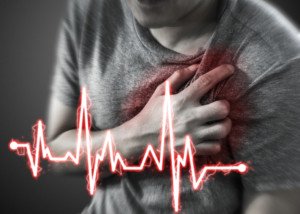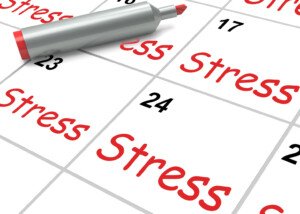
There really IS some truth to the saying, “If you don’t calm down you’ll have a heart attack.”
You’ve heard of extreme sudden fear causing a heart attack soon after, but can anger (which is a completely different emotion than is panic or fright), also lead to a heart attack or stroke?
Yes, says a study. The increased risk of heart attack or stroke, following an episode of anger, persists for up to two hours after.
The heightened risk, predictably, is much worse for people who have pre-existing risk factors for heart attack or stroke.
The study report says that high frequency of anger episodes increases the risk.
How does this all convert to numbers?
– In those with frequent outbursts of anger, five episodes per day would mean about 158 extra heart attacks per 10,000 individuals with low cardiovascular risk annually.
– The number of heart attacks jumps to 657 per 10,000 people in those who have a high cardiovascular risk.
“For people who already have issues with their heart or may have narrowed blood vessels supplying their heart, this [anger outbursts] can cause less blood flow to the heart and cause potential for heart attacks,” says Bethany Doran, MD, a board certified cardiologist and CEO of Enabled Health.
Nevertheless, a solid cause-and-effect relationship has not been established, when it comes to anger and heart attacks.
In other words, maybe people who frequently get angry are also more likely to have a high sodium junk food diet, smoke and/or not exercise.
On the other hand, mental stress drives up heart rate and blood pressure.
The so-called fight or flight response makes the blood thicken: nature’s way of protecting the body from bleeding out from the anticipated fight or escape).
The more that a person is in the midst of a stress response, the more often their blood is in a thickened state, which means it can clot more easily.
Problem is, modern man’s anger often takes place in a setting where he can’t fight or flee — such as at the workplace or stuck in a traffic jam on the way to an important appointment.
What can you do?
“Lowering risk factors for heart attacks by eating correctly, exercising and maintaining a healthy body weight can decrease risk factors for heart attack,” says Dr. Doran.
• Limit processed foods. Eat foods in their whole form as much as possible. For example, eat potatoes fresh from the produce section, not from a can.
• Keep sodium intake under 2,000 mg/day.
• Make efforts to lose excess weight via more exercise and portion control of food.
• If you smoke, quit. Limit drinking: eight ounces a day for men; four ounces a day for women.
• Do both aerobic exercise and strength training.

 Bethany Doran, MD,
Bethany Doran, MD,







































